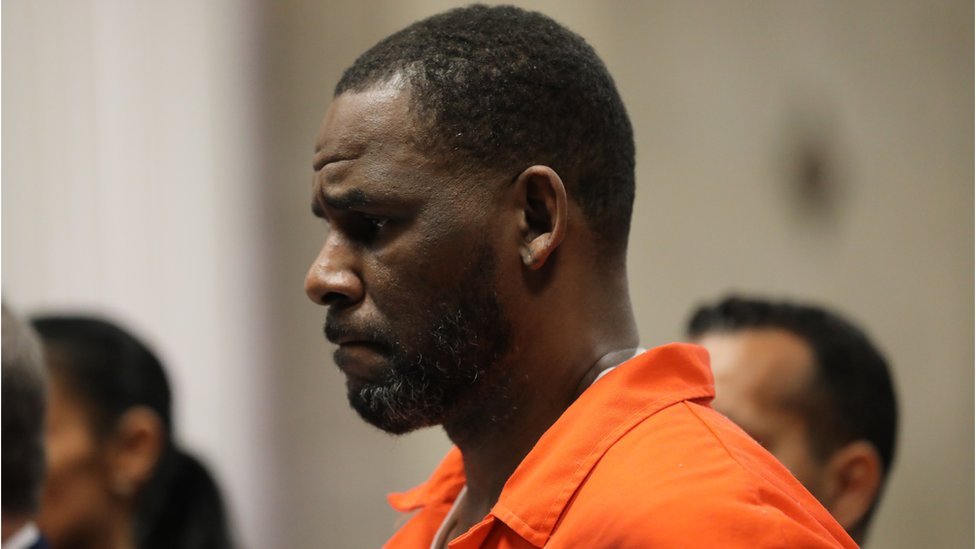R. Kelly’s Prison Call Sparks Podcast Debate: Art vs. Artist

In a twist that’s as surprising as it is controversial, podcasters April Smith and Patricia Dillard have plunged headfirst into the murky waters of cultural commentary by securing an interview with none other than R. Kelly from behind bars. Yes, you read that right—the self-proclaimed “Pied Piper of R&B,” currently serving a 30-year sentence for sex trafficking and racketeering, has become a topic of discussion on their “Inmate Tea with A&P” podcast.
The duo stumbled upon this unexpected opportunity while interviewing another inmate who just happened to mention that Kelly was nearby. Smith and Dillard, who typically focus on prison reform and the experiences of lesser-known inmates, decided to roll the dice and give the man a call. They argue that their decision was justified since they didn’t delve into the specifics of his case, which is wrapped in a gag order as he appeals his convictions on multiple serious charges, including sexual exploitation and violations of the Mann Act.
In an era where cancel culture reigns supreme, it’s no surprise that their choice has stirred mixed reactions. “We’re just 2 individuals who are able to separate the art from the artist,” Dillard remarked, echoing a sentiment that’s often debated in popular culture. Music historians and critics have long grappled with this notion, especially in cases involving artists like Kelly, whose music continues to resonate despite his criminal convictions.
For context, Kelly’s musical legacy is a complicated tapestry. His hits, including “Ignition (Remix)” and “I Believe I Can Fly,” have been overshadowed by allegations of sexual misconduct that culminated in his 2021 conviction. The ongoing dialogue about separating an artist’s work from their personal transgressions is not new; the likes of Michael Jackson and Kanye West have ignited similar debates in recent years.
While Smith and Dillard claim their podcast aims to shed light on prison conditions, the allure of a conversation with a high-profile inmate raises questions about ethics in media. Are they glorifying a convicted felon, or merely engaging in a complex discussion about redemption and responsibility? The answer seems as elusive as Kelly’s own narrative. Ultimately, the podcasters are leaving it up to their audience to judge, even as they revel in the controversy that surrounds their unexpected guest.
Sources: Celebrity Storm and People Magazine, Rolling Stone, The Guardian
Image Credit: Title: Untitled, Author: No author info, License: [‘cc_attribute’, ‘cc_nonderived’, ‘cc_publicdomain’]




